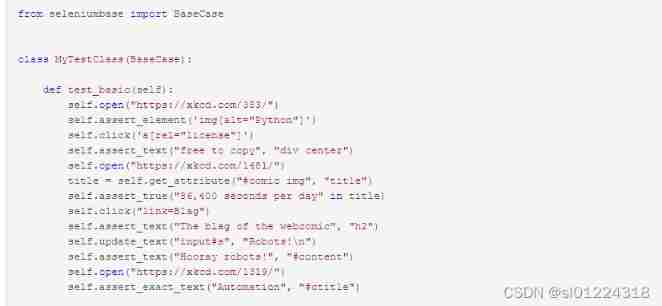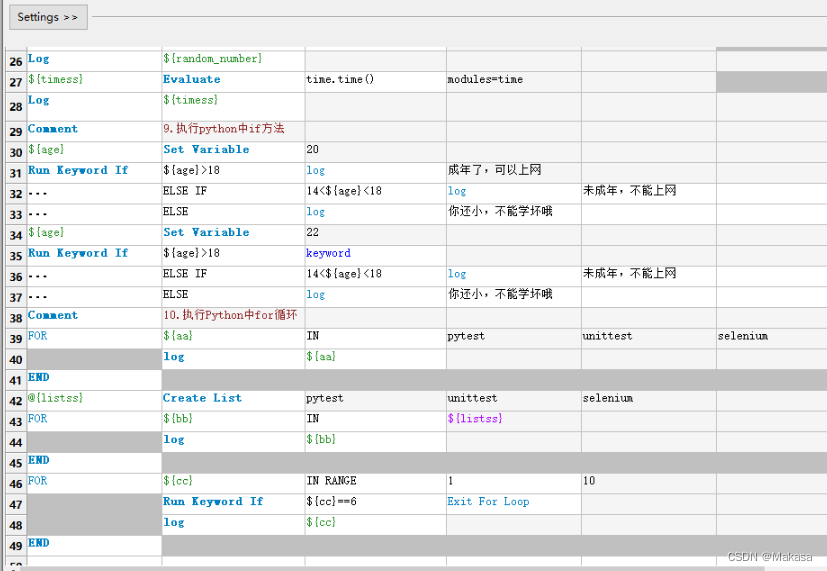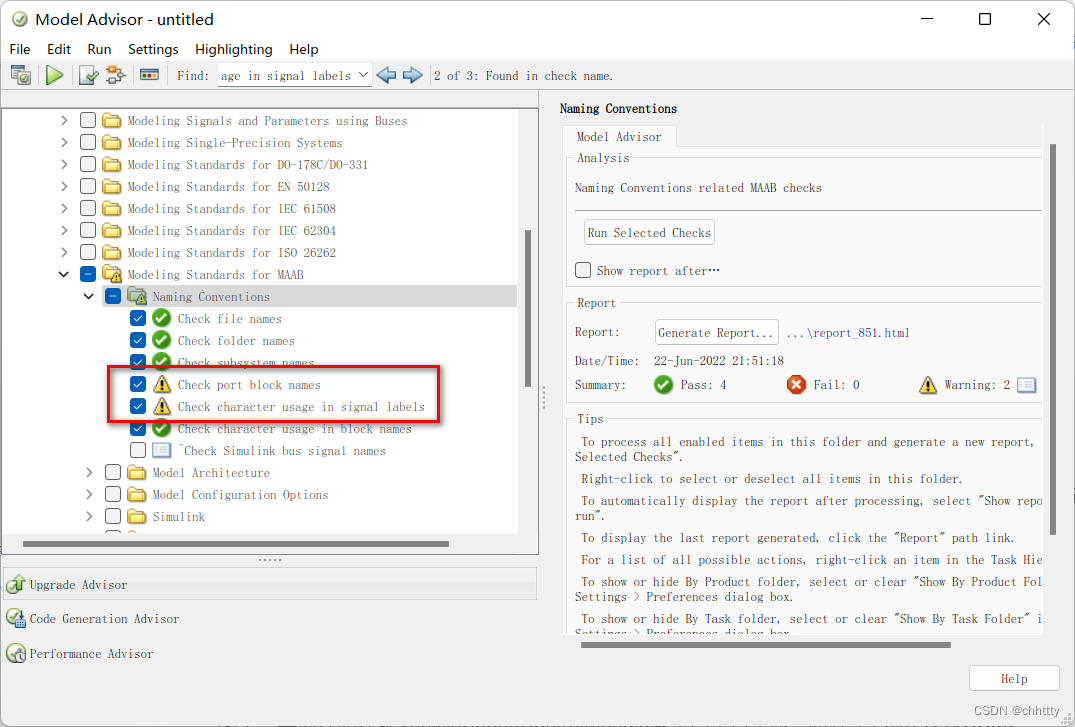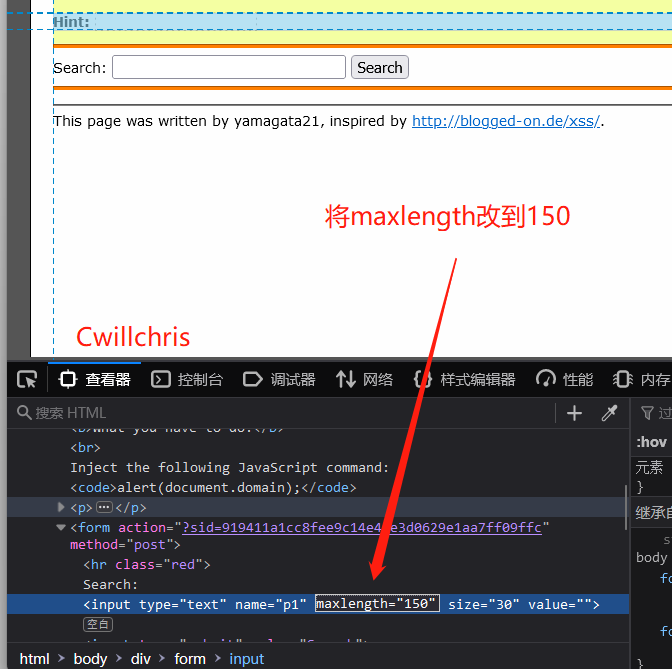当前位置:网站首页>Audio-AudioRecord Binder通信机制
Audio-AudioRecord Binder通信机制
2022-07-06 02:59:00 【Cmatrix204】
Android进程间通信大量使用IPC通信,在梳理AudioRecord相关流程中,IAudioFlinger、AudioFlinger,IAudioPolicyService、AudioPolicyService之间就是通过Binder进行通信的,结合具体的Audio的使用实例对Binder通信进行一些整理。
一、基于AudioFlinger解析Binder通信机制建立
1.frameworks/native/libs/binder/include/binder/IInterface.h
模板接口类INTERFACE,这个模板接口类就是Service提供的接口,INTERFACE需要继承Binder通信库提供的接口IInterface。
本地服务接口BnInterface
template<typename INTERFACE>
class BnInterface : public INTERFACE, public BBinder
{
public:
virtual sp<IInterface> queryLocalInterface(const String16& _descriptor);
virtual const String16& getInterfaceDescriptor() const;
protected:
typedef INTERFACE BaseInterface;
virtual IBinder* onAsBinder();
};
远程代理接口BpInterface
template<typename INTERFACE>
class BpInterface : public INTERFACE, public BpRefBase
{
public:
explicit BpInterface(const sp<IBinder>& remote);
protected:
typedef INTERFACE BaseInterface;
virtual IBinder* onAsBinder();
};
2.AudioFlinger Binder通信双方约定的协议代码
frameworks/av/media/libaudioclient/IAudioFlinger.cpp
enum {
CREATE_TRACK = IBinder::FIRST_CALL_TRANSACTION,
CREATE_RECORD,
SAMPLE_RATE,
RESERVED, // obsolete, was CHANNEL_COUNT
FORMAT,
...
SET_STREAM_MUTE,
STREAM_VOLUME,
STREAM_MUTE,
SET_MODE,
SET_MIC_MUTE,
GET_MIC_MUTE,
SET_RECORD_SILENCED,
SET_PARAMETERS,
GET_PARAMETERS,
REGISTER_CLIENT,
GET_INPUTBUFFERSIZE,
OPEN_OUTPUT,
OPEN_DUPLICATE_OUTPUT,
CLOSE_OUTPUT,
SUSPEND_OUTPUT,
RESTORE_OUTPUT,
OPEN_INPUT,
CLOSE_INPUT,
INVALIDATE_STREAM,
SET_VOICE_VOLUME,
GET_RENDER_POSITION,
GET_INPUT_FRAMES_LOST,
...
};
#define MAX_ITEMS_PER_LIST 10243.AudioFlinger Binder通信的模版接口类IAudioFlinger
frameworks/av/media/libaudioclient/include/media/IAudioFlinger.h
模版接口类IAudioFlinger继承Binder通信库提供的接口IInterface.
class IAudioFlinger : public IInterface
{
public:
DECLARE_META_INTERFACE(AudioFlinger); //通过宏定义声明的默认接口,AudioFlinger是Bn端实例的服务接口
...
/* CreateTrackInput contains all input arguments sent by AudioTrack to AudioFlinger
* when calling createTrack() including arguments that will be updated by AudioFlinger
* and returned in CreateTrackOutput object
*/
class CreateTrackInput : public Parcelable {
public:
status_t readFromParcel(const Parcel *parcel) override {
/* input arguments*/
memset(&attr, 0, sizeof(audio_attributes_t));
if (parcel->read(&attr, sizeof(audio_attributes_t)) != NO_ERROR) {
return DEAD_OBJECT;
}
attr.tags[AUDIO_ATTRIBUTES_TAGS_MAX_SIZE -1] = '\0';
memset(&config, 0, sizeof(audio_config_t));
if (parcel->read(&config, sizeof(audio_config_t)) != NO_ERROR) {
return DEAD_OBJECT;
}
if (clientInfo.readFromParcel(parcel) != NO_ERROR) {
return DEAD_OBJECT;
}
if (parcel->readInt32() != 0) {
// TODO: Using unsecurePointer() has some associated security
// pitfalls (see declaration for details).
// Either document why it is safe in this case or address
// the issue (e.g. by copying).
sharedBuffer = interface_cast<IMemory>(parcel->readStrongBinder());
if (sharedBuffer == 0 || sharedBuffer->unsecurePointer() == NULL) {
return BAD_VALUE;
}
}
notificationsPerBuffer = parcel->readInt32();
speed = parcel->readFloat();
audioTrackCallback = interface_cast<media::IAudioTrackCallback>(
parcel->readStrongBinder());
/* input/output arguments*/
(void)parcel->read(&flags, sizeof(audio_output_flags_t));
frameCount = parcel->readInt64();
notificationFrameCount = parcel->readInt64();
(void)parcel->read(&selectedDeviceId, sizeof(audio_port_handle_t));
(void)parcel->read(&sessionId, sizeof(audio_session_t));
return NO_ERROR;
}
status_t writeToParcel(Parcel *parcel) const override {
/* input arguments*/
(void)parcel->write(&attr, sizeof(audio_attributes_t));
(void)parcel->write(&config, sizeof(audio_config_t));
(void)clientInfo.writeToParcel(parcel);
if (sharedBuffer != 0) {
(void)parcel->writeInt32(1);
(void)parcel->writeStrongBinder(IInterface::asBinder(sharedBuffer));
} else {
(void)parcel->writeInt32(0);
}
(void)parcel->writeInt32(notificationsPerBuffer);
(void)parcel->writeFloat(speed);
(void)parcel->writeStrongBinder(IInterface::asBinder(audioTrackCallback));
/* input/output arguments*/
(void)parcel->write(&flags, sizeof(audio_output_flags_t));
(void)parcel->writeInt64(frameCount);
(void)parcel->writeInt64(notificationFrameCount);
(void)parcel->write(&selectedDeviceId, sizeof(audio_port_handle_t));
(void)parcel->write(&sessionId, sizeof(audio_session_t));
return NO_ERROR;
}
/* input */
audio_attributes_t attr;
audio_config_t config;
AudioClient clientInfo;
sp<IMemory> sharedBuffer;
uint32_t notificationsPerBuffer;
float speed;
sp<media::IAudioTrackCallback> audioTrackCallback;
/* input/output */
audio_output_flags_t flags;
size_t frameCount;
size_t notificationFrameCount;
audio_port_handle_t selectedDeviceId;
audio_session_t sessionId;
};
...
//这些都是纯虚函数,需要在继承它的接口下进行实现
/* create an audio track and registers it with AudioFlinger.
* return null if the track cannot be created.
*/
virtual sp<IAudioTrack> createTrack(const CreateTrackInput& input,
CreateTrackOutput& output,
status_t *status) = 0;
virtual sp<media::IAudioRecord> createRecord(const CreateRecordInput& input,
CreateRecordOutput& output,
status_t *status) = 0;
// FIXME Surprisingly, format/latency don't work for input handles
/* query the audio hardware state. This state never changes,
* and therefore can be cached.
*/
virtual uint32_t sampleRate(audio_io_handle_t ioHandle) const = 0;
// reserved; formerly channelCount()
virtual audio_format_t format(audio_io_handle_t output) const = 0;
virtual size_t frameCount(audio_io_handle_t ioHandle) const = 0;
// return estimated latency in milliseconds
virtual uint32_t latency(audio_io_handle_t output) const = 0;
...
}4.AudioFlinger Binder通信的本地接口BnAudioFlinger
frameworks/av/media/libaudioclient/include/media/IAudioFlinger.h
Bn(本地)端Service BnAudioFlinger继承BnInterface接口.
class BnAudioFlinger : public BnInterface<IAudioFlinger>
{
public:
virtual status_t onTransact( uint32_t code,
const Parcel& data,
Parcel* reply,
uint32_t flags = 0);
// Requests media.log to start merging log buffers
virtual void requestLogMerge() = 0;
};frameworks/av/media/libaudioclient/IAudioFlinger.cpp
本地端接口的onTransact()继承自BBinder,进程收到服务请求后,会根据收到的服务请求调用本地不同的接口,并将返回值填入reply中,之后binder库会完成与驱动通信的所有事件。
code:输入,表示双方约定的协议代码
data:输入,保存了接口需要的参数等。
reply:输出,接口的输出值保存在这个类中。
flags:一些特殊的配置信息。
IMPLEMENT_META_INTERFACE(AudioFlinger, "android.media.IAudioFlinger"); //模版接口类
// ----------------------------------------------------------------------
status_t BnAudioFlinger::onTransact(
uint32_t code, const Parcel& data, Parcel* reply, uint32_t flags)
{
// make sure transactions reserved to AudioPolicyManager do not come from other processes
switch (code) {
case SET_STREAM_VOLUME:
case SET_STREAM_MUTE:
case OPEN_OUTPUT:
case OPEN_DUPLICATE_OUTPUT:
case CLOSE_OUTPUT:
case SUSPEND_OUTPUT:
case RESTORE_OUTPUT:
case OPEN_INPUT:
case CLOSE_INPUT:
...
switch (code) {
case CREATE_TRACK: {
CHECK_INTERFACE(IAudioFlinger, data, reply); //判断请求是不是对应的代理对象IAudioFlinger发送过来的,如果不是,就不会继续往下执行
CreateTrackInput input;
if (input.readFromParcel((Parcel*)&data) != NO_ERROR) {
reply->writeInt32(DEAD_OBJECT);
return NO_ERROR;
}
status_t status;
CreateTrackOutput output;
sp<IAudioTrack> track= createTrack(input,
output,
&status);
LOG_ALWAYS_FATAL_IF((track != 0) != (status == NO_ERROR));
reply->writeInt32(status);
if (status != NO_ERROR) {
return NO_ERROR;
}
reply->writeStrongBinder(IInterface::asBinder(track));
output.writeToParcel(reply);
return NO_ERROR;
} break;
case CREATE_RECORD: {
CHECK_INTERFACE(IAudioFlinger, data, reply);
CreateRecordInput input;
if (input.readFromParcel((Parcel*)&data) != NO_ERROR) {
reply->writeInt32(DEAD_OBJECT);
return NO_ERROR;
}
status_t status;
CreateRecordOutput output;
sp<media::IAudioRecord> record = createRecord(input,
output,
&status);
LOG_ALWAYS_FATAL_IF((record != 0) != (status == NO_ERROR));
reply->writeInt32(status);
if (status != NO_ERROR) {
return NO_ERROR;
}
reply->writeStrongBinder(IInterface::asBinder(record));
output.writeToParcel(reply);
return NO_ERROR;
} break;
case SAMPLE_RATE: {
CHECK_INTERFACE(IAudioFlinger, data, reply);
reply->writeInt32( sampleRate((audio_io_handle_t) data.readInt32()) );
return NO_ERROR;
} break;
}frameworks/av/services/audioflinger/AudioFlinger.h
BnAudioFlinger依然是纯虚函数,并没有实现本地端的createRecord等接口,Bn(本地)端实例出的服务接口AudioFlinger,将AudioFlinger注册到service manager里面的实现是在BinderService里面实现。
#define INCLUDING_FROM_AUDIOFLINGER_H
class AudioFlinger :
public BinderService<AudioFlinger>,
public BnAudioFlinger
{
friend class BinderService<AudioFlinger>; // for AudioFlinger()
public:
static const char* getServiceName() ANDROID_API { return "media.audio_flinger"; }
virtual status_t dump(int fd, const Vector<String16>& args);
// IAudioFlinger interface, in binder opcode order
virtual sp<IAudioTrack> createTrack(const CreateTrackInput& input,
CreateTrackOutput& output,
status_t *status);
virtual sp<media::IAudioRecord> createRecord(const CreateRecordInput& input,
CreateRecordOutput& output,
status_t *status);
...
}
frameworks/av/services/audioflinger/AudioFlinger.cpp
具体实现在AudioFlinger.cpp中
AudioFlinger::AudioFlinger()
: BnAudioFlinger(),
mMediaLogNotifier(new AudioFlinger::MediaLogNotifier()),
mPrimaryHardwareDev(NULL),
mAudioHwDevs(NULL),
mHardwareStatus(AUDIO_HW_IDLE),
mMasterVolume(1.0f),
mMasterMute(false),
// mNextUniqueId(AUDIO_UNIQUE_ID_USE_MAX),
mMode(AUDIO_MODE_INVALID),
mBtNrecIsOff(false),
mIsLowRamDevice(true),
mIsDeviceTypeKnown(false),
mTotalMemory(0),
mClientSharedHeapSize(kMinimumClientSharedHeapSizeBytes),
mGlobalEffectEnableTime(0),
mPatchPanel(this),
mDeviceEffectManager(this),
mSystemReady(false)
{
// unsigned instead of audio_unique_id_use_t, because ++ operator is unavailable for enum
for (unsigned use = AUDIO_UNIQUE_ID_USE_UNSPECIFIED; use < AUDIO_UNIQUE_ID_USE_MAX; use++) {
// zero ID has a special meaning, so unavailable
mNextUniqueIds[use] = AUDIO_UNIQUE_ID_USE_MAX;
}
/* get property and set mSYSTEM_READY */
const bool systemreadyStatus = property_get_bool("af.media.systemready.state", false);
if (systemreadyStatus) {
mSystemReady = true;
}
const bool doLog = property_get_bool("ro.test_harness", false);
if (doLog) {
mLogMemoryDealer = new MemoryDealer(kLogMemorySize, "LogWriters",
MemoryHeapBase::READ_ONLY);
(void) pthread_once(&sMediaLogOnce, sMediaLogInit);
}
// reset battery stats.
// if the audio service has crashed, battery stats could be left
// in bad state, reset the state upon service start.
BatteryNotifier::getInstance().noteResetAudio();
mDevicesFactoryHal = DevicesFactoryHalInterface::create();
mEffectsFactoryHal = EffectsFactoryHalInterface::create();
mMediaLogNotifier->run("MediaLogNotifier");
std::vector<pid_t> halPids;
mDevicesFactoryHal->getHalPids(&halPids);
TimeCheck::setAudioHalPids(halPids);
// Notify that we have started (also called when audioserver service restarts)
mediametrics::LogItem(mMetricsId)
.set(AMEDIAMETRICS_PROP_EVENT, AMEDIAMETRICS_PROP_EVENT_VALUE_CTOR)
.record();
}
sp<media::IAudioRecord> AudioFlinger::createRecord(const CreateRecordInput& input,
CreateRecordOutput& output,
status_t *status)
{
sp<RecordThread::RecordTrack> recordTrack;
sp<RecordHandle> recordHandle;
sp<Client> client;
status_t lStatus;
audio_session_t sessionId = input.sessionId;
audio_port_handle_t portId = AUDIO_PORT_HANDLE_NONE;
output.cblk.clear();
output.buffers.clear();
output.inputId = AUDIO_IO_HANDLE_NONE;
r (;;) {
// release previously opened input if retrying.
if (output.inputId != AUDIO_IO_HANDLE_NONE) {
recordTrack.clear();
AudioSystem::releaseInput(portId);
output.inputId = AUDIO_IO_HANDLE_NONE;
output.selectedDeviceId = input.selectedDeviceId;
portId = AUDIO_PORT_HANDLE_NONE;
}
...
ALOGI("wsj-audioFlinger->createRecord getInputForAttr, sessionId: %d, clientPid: %d, clientUid: %d, input.opPackageName: %s, output.flags: %d", sessionId, clientPid, clientUid, String8(input.opPackageName).string(), output.flags);
lStatus = AudioSystem::getInputForAttr(&input.attr, &output.inputId,
input.riid,
sessionId,
// FIXME compare to AudioTrack
clientPid,
clientUid,
input.opPackageName,
&input.config,
output.flags, &output.selectedDeviceId, &portId);
if (lStatus != NO_ERROR) {
ALOGE("createRecord() getInputForAttr return error %d", lStatus);
goto Exit;
}
...
ALOGI("wsj-createRecord() AudioFlinger::createRecord lSessionId: %d input %d", sessionId, output.inputId);
output.sampleRate = input.config.sample_rate;
output.frameCount = input.frameCount;
output.notificationFrameCount = input.notificationFrameCount;
ALOGI("wsj-createRecord() AudioFlinger::createRecord createRecordTrack_l");
recordTrack = thread->createRecordTrack_l(client, input.attr, &output.sampleRate,
input.config.format, input.config.channel_mask,
&output.frameCount, sessionId,
&output.notificationFrameCount,
callingPid, clientUid, &output.flags,
input.clientInfo.clientTid,
&lStatus, portId,
input.opPackageName);
LOG_ALWAYS_FATAL_IF((lStatus == NO_ERROR) && (recordTrack == 0));
// lStatus == BAD_TYPE means FAST flag was rejected: request a new input from
// audio policy manager without FAST constraint
if (lStatus == BAD_TYPE) {
continue;
}
if (lStatus != NO_ERROR) {
goto Exit;
}
// Check if one effect chain was awaiting for an AudioRecord to be created on this
// session and move it to this thread.
ALOGI("wsj-createRecord() AudioFlinger::createRecord getOrphanEffectChain_l");
sp<EffectChain> chain = getOrphanEffectChain_l(sessionId);
if (chain != 0) {
Mutex::Autolock _l(thread->mLock);
thread->addEffectChain_l(chain);
}
break;
}
// End of retry loop.
// The lack of indentation is deliberate, to reduce code churn and ease merges.
}
output.cblk = recordTrack->getCblk();
output.buffers = recordTrack->getBuffers();
output.portId = portId;
// return handle to client
recordHandle = new RecordHandle(recordTrack);
...
}
...
frameworks/native/include/binder/BinderService.h
Bn端的AudioFlinger通过集成BinderService的公共接口将 本地类FregServer通过服务名AudioFlinger注册到service manager中。
template<typename SERVICE>
class BinderService
{
public:
//用来注册服务的静态方法
static status_t publish(bool allowIsolated = false,
int dumpFlags = IServiceManager::DUMP_FLAG_PRIORITY_DEFAULT) {
sp<IServiceManager> sm(defaultServiceManager());
return sm->addService(String16(SERVICE::getServiceName()), new SERVICE(), allowIsolated,
dumpFlags);
}
static void publishAndJoinThreadPool(
bool allowIsolated = false,
int dumpFlags = IServiceManager::DUMP_FLAG_PRIORITY_DEFAULT) {
publish(allowIsolated, dumpFlags);
joinThreadPool();
}
static void instantiate() { publish(); }
static status_t shutdown() { return NO_ERROR; }
private:
static void joinThreadPool() {
sp<ProcessState> ps(ProcessState::self());
ps->startThreadPool();
ps->giveThreadPoolName();
IPCThreadState::self()->joinThreadPool();
}
};
5. AudioFlinger Binder通信的远程代理接口BpAudioFlinger
frameworks/av/media/libaudioclient/IAudioFlinger.cpp
writeInterfaceToken将通信头写入到输入数据data中,remote()返回的是一个BpBinder,所以这里调用了BpBinder的transact方法,将通信请求发送到服务端,再从返回结果reply中读出服务端的返回数据。
这个跨进程通信的过程通过封装,对于用户来说是通过代理接口就可以直接返回本地接口的处理结果。
class BpAudioFlinger : public BpInterface<IAudioFlinger>
{
public:
explicit BpAudioFlinger(const sp<IBinder>& impl)
: BpInterface<IAudioFlinger>(impl)
{
}
virtual sp<IAudioTrack> createTrack(const CreateTrackInput& input,
CreateTrackOutput& output,
status_t *status)
{
Parcel data, reply;
sp<IAudioTrack> track;
data.writeInterfaceToken(IAudioFlinger::getInterfaceDescriptor());
if (status == nullptr) {
return track;
}
input.writeToParcel(&data); //模版接口类IAudioFlinger定义的方法用来解析input数据
status_t lStatus = remote()->transact(CREATE_TRACK, data, &reply);
if (lStatus != NO_ERROR) {
ALOGE("createTrack transaction error %d", lStatus);
*status = DEAD_OBJECT;
return track;
}
*status = reply.readInt32();
if (*status != NO_ERROR) {
ALOGE("createTrack returned error %d", *status);
return track;
}
track = interface_cast<IAudioTrack>(reply.readStrongBinder());
if (track == 0) {
ALOGE("createTrack returned an NULL IAudioTrack with status OK");
*status = DEAD_OBJECT;
return track;
}
output.readFromParcel(&reply);
return track;
}
virtual sp<media::IAudioRecord> createRecord(const CreateRecordInput& input,
CreateRecordOutput& output,
status_t *status)
{
Parcel data, reply;
sp<media::IAudioRecord> record;
data.writeInterfaceToken(IAudioFlinger::getInterfaceDescriptor());
if (status == nullptr) {
return record;
}
ALOGI("wsj-IaudioFlinger->createRecord input.writeToParcel(&data)");
input.writeToParcel(&data);
status_t lStatus = remote()->transact(CREATE_RECORD, data, &reply);
if (lStatus != NO_ERROR) {
ALOGE("createRecord transaction error %d", lStatus);
*status = DEAD_OBJECT;
return record;
}
*status = reply.readInt32();
if (*status != NO_ERROR) {
ALOGE("createRecord returned error %d", *status);
return record;
}
record = interface_cast<media::IAudioRecord>(reply.readStrongBinder());
if (record == 0) {
ALOGE("createRecord returned a NULL IAudioRecord with status OK");
*status = DEAD_OBJECT;
return record;
}
ALOGI("wsj-IaudioFlinger->createRecord output.readFromParcel(&reply)");
output.readFromParcel(&reply);
return record;
}
...
}6.AudioFlinger bp端Client的具体触发
frameworks/av/media/libaudioclient/AudioRecord.cpp
AudioRecord create阶段做了简单的触发AudioFlinger Binder通信动作。
// must be called with mLock held
status_t AudioRecord::createRecord_l(const Modulo<uint32_t> &epoch, const String16& opPackageName)
{
const int64_t beginNs = systemTime();
const sp<IAudioFlinger>& audioFlinger = AudioSystem::get_audio_flinger();
IAudioFlinger::CreateRecordInput input;
IAudioFlinger::CreateRecordOutput output;
audio_session_t originalSessionId;
sp<media::IAudioRecord> record;
...
}frameworks/av/media/libaudioclient/AudioSystem.cpp
binder->linkToDeath(gAudioFlingerClient)这边利用AudioFlingerClinet进行了一个Binder通信Client端的死亡监听的功能,实际上的通信的接收、处理还是利用的本地端接口AudioFlinger进行的处理。
// establish binder interface to AudioFlinger service
const sp<IAudioFlinger> AudioSystem::get_audio_flinger()
{
sp<IAudioFlinger> af;
sp<AudioFlingerClient> afc;
bool reportNoError = false;
{
Mutex::Autolock _l(gLock);
if (gAudioFlinger == 0) {
sp<IServiceManager> sm = defaultServiceManager();
sp<IBinder> binder;
do {
binder = sm->getService(String16("media.audio_flinger"));
if (binder != 0)
break;
ALOGW("AudioFlinger not published, waiting...");
usleep(500000); // 0.5 s
} while (true);
if (gAudioFlingerClient == NULL) {
gAudioFlingerClient = new AudioFlingerClient();
} else {
reportNoError = true;
}
///*add by shengjie for parse AudioFlingerClient
//AudioFlingerClient: public IBinder::DeathRecipient 集成了Binder死亡通知监听实现
//*/
binder->linkToDeath(gAudioFlingerClient);
gAudioFlinger = interface_cast<IAudioFlinger>(binder);
LOG_ALWAYS_FATAL_IF(gAudioFlinger == 0);
afc = gAudioFlingerClient;
// Make sure callbacks can be received by gAudioFlingerClient
ProcessState::self()->startThreadPool();
}
af = gAudioFlinger;
}
if (afc != 0) {
int64_t token = IPCThreadState::self()->clearCallingIdentity();
af->registerClient(afc);
IPCThreadState::self()->restoreCallingIdentity(token);
}
if (reportNoError) reportError(NO_ERROR);
return af;
}二、简单的AudioFlingerClient Binder死亡监听机制解析
1.frameworks/av/media/libaudioclient/include/media/IAudioFlingerClient.h
模版接口类IAudioFlingerClient、本地服务接口BnAudioFlingerClient定义都在这边。
namespace android {
// ----------------------------------------------------------------------------
class IAudioFlingerClient : public IInterface
{
public:
DECLARE_META_INTERFACE(AudioFlingerClient);
// Notifies a change of audio input/output configuration.
virtual void ioConfigChanged(audio_io_config_event event,
const sp<AudioIoDescriptor>& ioDesc) = 0;
};
// ----------------------------------------------------------------------------
class BnAudioFlingerClient : public BnInterface<IAudioFlingerClient>
{
public:
virtual status_t onTransact( uint32_t code,
const Parcel& data,
Parcel* reply,
uint32_t flags = 0);
};
// ----------------------------------------------------------------------------
}; // namespace android
2. frameworks/av/media/libaudioclient/IAudioFlingerClient.cpp
远端、本地端服务接口的实现都在这边
//远端Client服务接口的实现
class BpAudioFlingerClient : public BpInterface<IAudioFlingerClient>
{
public:
explicit BpAudioFlingerClient(const sp<IBinder>& impl)
: BpInterface<IAudioFlingerClient>(impl)
{
}
void ioConfigChanged(audio_io_config_event event, const sp<AudioIoDescriptor>& ioDesc)
{
Parcel data, reply;
data.writeInterfaceToken(IAudioFlingerClient::getInterfaceDescriptor());
data.writeInt32(event);
data.writeInt32((int32_t)ioDesc->mIoHandle);
data.write(&ioDesc->mPatch, sizeof(struct audio_patch));
data.writeInt32(ioDesc->mSamplingRate);
data.writeInt32(ioDesc->mFormat);
data.writeInt32(ioDesc->mChannelMask);
data.writeInt64(ioDesc->mFrameCount);
data.writeInt64(ioDesc->mFrameCountHAL);
data.writeInt32(ioDesc->mLatency);
data.writeInt32(ioDesc->mPortId);
remote()->transact(IO_CONFIG_CHANGED, data, &reply, IBinder::FLAG_ONEWAY);
}
};
//本地服务接口的实现
IMPLEMENT_META_INTERFACE(AudioFlingerClient, "android.media.IAudioFlingerClient");
status_t BnAudioFlingerClient::onTransact(
uint32_t code, const Parcel& data, Parcel* reply, uint32_t flags)
{
switch (code) {
case IO_CONFIG_CHANGED: {
CHECK_INTERFACE(IAudioFlingerClient, data, reply);
audio_io_config_event event = (audio_io_config_event)data.readInt32();
sp<AudioIoDescriptor> ioDesc = new AudioIoDescriptor();
ioDesc->mIoHandle = (audio_io_handle_t) data.readInt32();
data.read(&ioDesc->mPatch, sizeof(struct audio_patch));
ioDesc->mSamplingRate = data.readInt32();
ioDesc->mFormat = (audio_format_t) data.readInt32();
ioDesc->mChannelMask = (audio_channel_mask_t) data.readInt32();
ioDesc->mFrameCount = data.readInt64();
ioDesc->mFrameCountHAL = data.readInt64();
ioDesc->mLatency = data.readInt32();
ioDesc->mPortId = data.readInt32();
ioConfigChanged(event, ioDesc);
return NO_ERROR;
} break;
default:
return BBinder::onTransact(code, data, reply, flags);
}
}
...
3.frameworks/av/media/libaudioclient/include/media/AudioSystem.h
本地Bn虚函数的具体接口定义在AudioSystem.h,实现在AudioSystem.cpp
class AudioFlingerClient: public IBinder::DeathRecipient, public BnAudioFlingerClient
{
public:
AudioFlingerClient() :
mInBuffSize(0), mInSamplingRate(0),
mInFormat(AUDIO_FORMAT_DEFAULT), mInChannelMask(AUDIO_CHANNEL_NONE) {
}
void clearIoCache();
status_t getInputBufferSize(uint32_t sampleRate, audio_format_t format,
audio_channel_mask_t channelMask, size_t* buffSize);
sp<AudioIoDescriptor> getIoDescriptor(audio_io_handle_t ioHandle);
// DeathRecipient
virtual void binderDied(const wp<IBinder>& who);
// IAudioFlingerClient
// indicate a change in the configuration of an output or input: keeps the cached
// values for output/input parameters up-to-date in client process
virtual void ioConfigChanged(audio_io_config_event event,
const sp<AudioIoDescriptor>& ioDesc);
///*add by shengjie for parse AudioFlingerClient
//当通过Binder检测到远端啊client相关状态时进行相应的处理
//*/
status_t addAudioDeviceCallback(const wp<AudioDeviceCallback>& callback,
audio_io_handle_t audioIo,
audio_port_handle_t portId);
status_t removeAudioDeviceCallback(const wp<AudioDeviceCallback>& callback,
audio_io_handle_t audioIo,
audio_port_handle_t portId);
audio_port_handle_t getDeviceIdForIo(audio_io_handle_t audioIo);
private:
Mutex mLock;
DefaultKeyedVector<audio_io_handle_t, sp<AudioIoDescriptor> > mIoDescriptors;
std::map<audio_io_handle_t, std::map<audio_port_handle_t, wp<AudioDeviceCallback>>>
mAudioDeviceCallbacks;
// cached values for recording getInputBufferSize() queries
size_t mInBuffSize; // zero indicates cache is invalid
uint32_t mInSamplingRate;
audio_format_t mInFormat;
audio_channel_mask_t mInChannelMask;
sp<AudioIoDescriptor> getIoDescriptor_l(audio_io_handle_t ioHandle);
};
frameworks/av/media/libaudioclient/AudioSystem.cpp
status_t AudioSystem::AudioFlingerClient::removeAudioDeviceCallback(
const wp<AudioDeviceCallback>& callback __unused, audio_io_handle_t audioIo,
audio_port_handle_t portId)
{
ALOGV("%s audioIo %d portId %d", __func__, audioIo, portId);
Mutex::Autolock _l(mLock);
auto it = mAudioDeviceCallbacks.find(audioIo);
if (it == mAudioDeviceCallbacks.end()) {
return INVALID_OPERATION;
}
if (it->second.erase(portId) == 0) {
return INVALID_OPERATION;
}
if (it->second.size() == 0) {
mAudioDeviceCallbacks.erase(audioIo);
}
return NO_ERROR;
}
void AudioSystem::AudioFlingerClient::ioConfigChanged(audio_io_config_event event,
const sp<AudioIoDescriptor>& ioDesc) {
ALOGV("ioConfigChanged() event %d", event);
if (ioDesc == 0 || ioDesc->mIoHandle == AUDIO_IO_HANDLE_NONE) return;
audio_port_handle_t deviceId = AUDIO_PORT_HANDLE_NONE;
std::vector<sp<AudioDeviceCallback>> callbacksToCall;
{
Mutex::Autolock _l(mLock);
auto callbacks = std::map<audio_port_handle_t, wp<AudioDeviceCallback>>();
switch (event) {
case AUDIO_OUTPUT_OPENED:
case AUDIO_OUTPUT_REGISTERED:
case AUDIO_INPUT_OPENED:
case AUDIO_INPUT_REGISTERED: {
sp<AudioIoDescriptor> oldDesc = getIoDescriptor_l(ioDesc->mIoHandle);
if (oldDesc == 0) {
mIoDescriptors.add(ioDesc->mIoHandle, ioDesc);
} else {
deviceId = oldDesc->getDeviceId();
mIoDescriptors.replaceValueFor(ioDesc->mIoHandle, ioDesc);
}
if (ioDesc->getDeviceId() != AUDIO_PORT_HANDLE_NONE) {
deviceId = ioDesc->getDeviceId();
if (event == AUDIO_OUTPUT_OPENED || event == AUDIO_INPUT_OPENED) {
auto it = mAudioDeviceCallbacks.find(ioDesc->mIoHandle);
if (it != mAudioDeviceCallbacks.end()) {
callbacks = it->second;
}
}
}
ALOGV("ioConfigChanged() new %s %s %d samplingRate %u, format %#x channel mask %#x "
"frameCount %zu deviceId %d",
event == AUDIO_OUTPUT_OPENED || event == AUDIO_OUTPUT_REGISTERED ?
"output" : "input",
event == AUDIO_OUTPUT_OPENED || event == AUDIO_INPUT_OPENED ?
"opened" : "registered",
ioDesc->mIoHandle, ioDesc->mSamplingRate, ioDesc->mFormat, ioDesc->mChannelMask,
ioDesc->mFrameCount, ioDesc->getDeviceId());
} break;
case AUDIO_OUTPUT_CLOSED:
...
}总结:
Binder进程间通信机制广泛应用在Android Camera、Audio等各个模块之间,同时对于Binder通信的底层实现:进程通过open打开设备,并通过mmap设置好了内存映射区域后,再通过ioctl()的方式,使用binder驱动定义的一些协议与binder进行通信的机制也有着很多值得深入研究的信息与内容。
边栏推荐
- PMP practice once a day | don't get lost in the exam -7.5
- Referenceerror: primordials is not defined error resolution
- 2.11 simulation summary
- 2.12 simulation
- How does yyds dry inventory deal with repeated messages in the consumption process?
- Summary of Bible story reading
- 【Kubernetes 系列】一文学会Kubernetes Service安全的暴露应用
- Jenkins basic knowledge ----- detailed explanation of 03pipeline code
- My C language learning records (blue bridge) -- files and file input and output
- Spherical lens and cylindrical lens
猜你喜欢

Selenium share

What is the investment value of iFLYTEK, which does not make money?

Introduction to robotframework (I) brief introduction and use

Codeworks 5 questions per day (1700 average) - day 6

Linear programming matlab

Codeforces 5 questions par jour (1700 chacune) - jour 6

Modeling specifications: naming conventions
![[Yunju entrepreneurial foundation notes] Chapter II entrepreneur test 15](/img/72/0fe9cb032339d5f1ccf6f6c24edc57.jpg)
[Yunju entrepreneurial foundation notes] Chapter II entrepreneur test 15

XSS challenges bypass the protection strategy for XSS injection
![[Yu Yue education] basic reference materials of digital electronic technology of Xi'an University of Technology](/img/47/e895a75eb3af2aaeafc6ae76caafe4.jpg)
[Yu Yue education] basic reference materials of digital electronic technology of Xi'an University of Technology
随机推荐
【若依(ruoyi)】ztree 自定义图标(iconSkin 属性)
[Yunju entrepreneurial foundation notes] Chapter II entrepreneur test 12
Pat 1046 shortest distance (20 points) simulation
Technology sharing | what if Undo is too big
Web security SQL injection vulnerability (1)
纯Qt版中国象棋:实现双人对战、人机对战及网络对战
Referenceerror: primordials is not defined error resolution
tcpdump: no suitable device found
淘宝焦点图布局实战
[Yunju entrepreneurial foundation notes] Chapter II entrepreneur test 6
[unity3d] GUI control
[ruoyi] ztree custom icon (iconskin attribute)
Single instance mode of encapsulating PDO with PHP in spare time
2345 file shredding, powerful file deletion tool, unbound pure extract version
Yyds dry inventory comparison of several database storage engines
解决:AttributeError: ‘str‘ object has no attribute ‘decode‘
Modeling specifications: naming conventions
Atcoder beginer contest 233 (a~d) solution
华为、H3C、思科命令对比,思维导图形式从基础、交换、路由三大方向介绍【转自微信公众号网络技术联盟站】
【 kubernets series】 a Literature Study on the Safe exposure Applications of kubernets Service